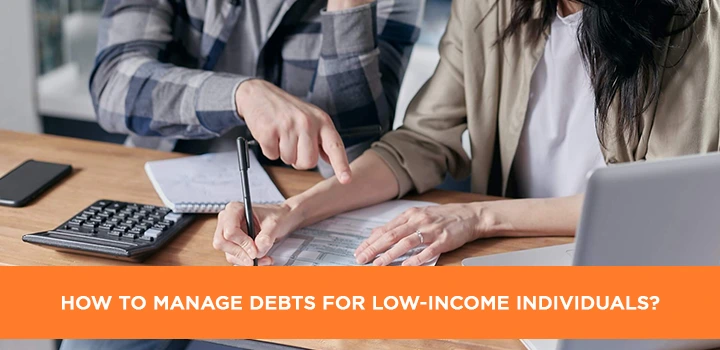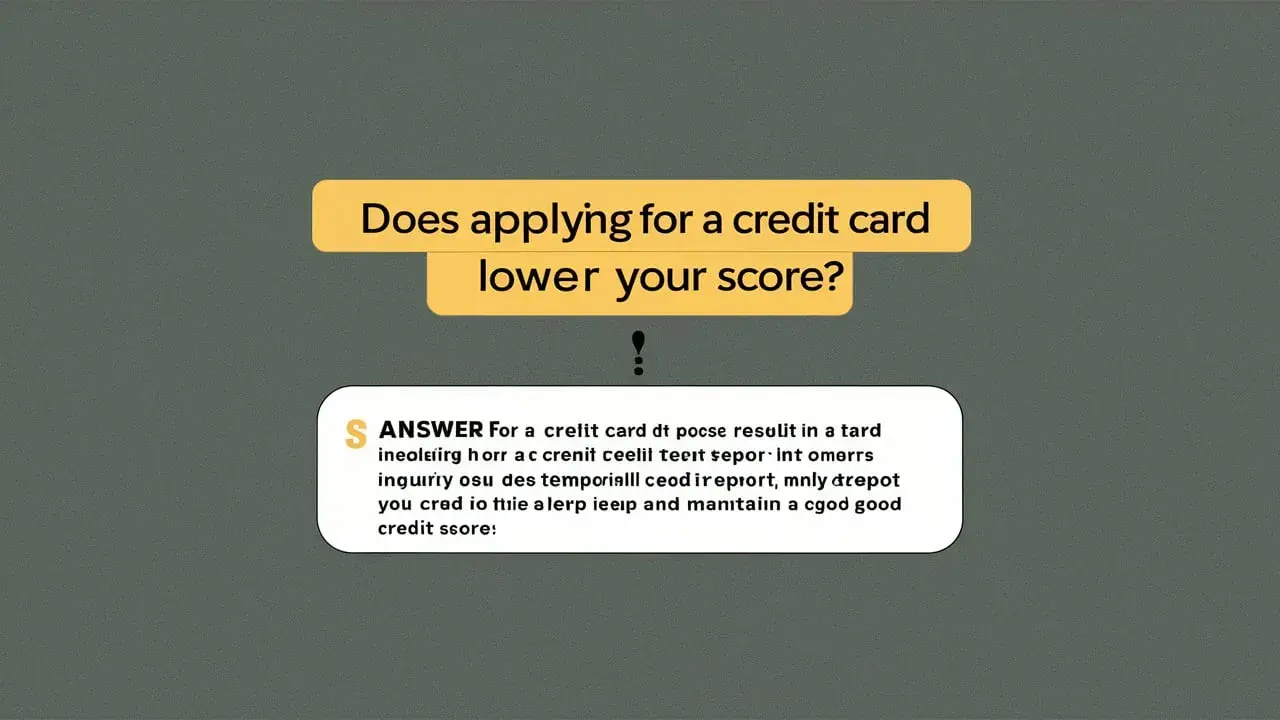-
Posted on: 11 Mar 2023

-
While managing debt may be difficult, low-income people who might be trying to make ends meet may find it extremely difficult. Credit card debt, loans, medical expenses, and other kinds of debt may all coexist. Debt may build up rapidly and become unmanageable when your income falls short of covering all of your costs. With some careful planning and techniques, however, you may take charge of your debt and begin toward debt-free living.
Identify and prioritize debt repayments.
Starting with the loans you have and ranking them according to their interest rates and general size can help you better manage your debt. These ideas can help you to recognize and rank your debt obligations:
- First, list all of your debts—including credit cards, loans, and any other outstanding amounts.
- After you have your list, arrange your debts according to the rates they charge. First, to pay off our debts with higher interest rates as over time they will cost more money.
- Sort your many debts in order of largest balance if their interest rates are identical. This will enable you to reduce your debt burden more significantly.
- If you might get a better interest rate, think about grouping your obligations. Over time, this may save you money and enable you to pay off your obligations more rapidly.
- Don't overlook also making your minimum payments on every one of your loans every month. This will help you preserve excellent credit and prevent late fines and costs.
Though it might be difficult, remember that you can move toward debt-free with the correct plan and some discipline. As you attempt to pay off your debt, keep these ideas in mind; always consult a financial counselor or another professional if you need more direction.
Create a budget
A budget should be developed with careful regard for all revenue sources and costs. First let's enumerate all the required monthly costs, including utilities, food, rent, and transportation. Once things are under control, think about any extra outlays, including entertainment or unanticipated costs.
To find out how much money may be assigned to each category, one must first identify all revenue sources—including a set monthly income and any other sources of income.
Making a budget calls for giving costs priority and distributing money appropriately. To pay bills and preserve money for future needs, one may have to reduce certain indulgences.
Recall that over time even little adjustments may add up and support financial stability. Moreover crucial to guarantee that the budget is efficient and in line with present financial objectives is constant review and modification of it.
Making and following a budget may provide financial stability and mental peace of mind overall.
Negotiate payment plans or settlements.
When talking about settlements or payment schedules, approach the matter from a friendly standpoint and use a third-person point of view. This may assist in providing a more objective and impartial surrounding, hence enabling more fruitful conversations.
Saying "They are experiencing financial difficulties and are unable to make the full payment at this time," for instance, instead of "I can't afford to pay this bill in full."
Open and honest communication regarding one's financial condition is also vital when discussing settlement or payment schedules. This might assist in creating trust and strengthen the rapport among the engaged parties.
Some helpful phrases to use when negotiating payment plans or settlements include:
- Is it feasible to create a payment schedule more fit for both sides?
- They want some flexibility in the payment terms even though they are dedicated to fulfilling their financial responsibilities.
- For both of us, if we could arrive at a mutually agreed-upon settlement figure, would be fantastic.
Explore debt consolidation options.
Those who find themselves juggling many bills may find great benefits from debt consolidation. It lets many loans or outstanding sums be aggregated into a single, simple payment. Many debt consolidation choices can enable you to pay off your debt in a more reasonable manner and simplify your budget.
A debt consolidation loan is one often used choice for debt restructuring. Combining all of your debt into one single loan with a set interest rate and period this kind of loan offers By simply handling one loan, you may help decrease your monthly payments, cut your total interest rate, and simplify your financial life.
One further option is a balance transfer credit card. This approach lets you move balances on your high-interest credit card to a new card with either a low or zero starting interest rate. This will enable you to pay off your debt quicker and cut interest payment expenses.
One should be aware of the fees and interest rates connected to any debt consolidation choice before deciding on any one. Furthermore crucial is ensuring that the selected alternative meets your general financial status, financial objectives, and budget.
Seek out a financial assistance program
Approaching the search with a nice tone of speech and in the third person point of view helps one find financial aid programs. This strategy might assist the search to seem less taxing and more under control.
Starting your search online can help you to locate financial aid options. Many websites compile companies and initiatives providing financial relief to persons in need. Getting in touch with a local credit repair company might also be beneficial to find out if they have programs or services accessible.
This may help to build a good rapport with the company, therefore facilitating the receipt of support. Clearly and succinctly outlining the circumstances and any particular financial demands might often be very beneficial.
Avoid falling back into debt.
If one just paid off their debt, one should exercise caution to prevent reliving debt. The following pointers should help you:
- Make a budget with all income and spending, then follow it. This will guarantee on-time payment of bills and help to avoid impulse buying.
- Save an emergency reserve for unexpected costs including medical bills or auto repairs. This will stop one from depending on credit cards for help.
- If credit cards are required, aim to pay off the bill completely every month to prevent building high interest rates.
- Unless needed, avoid opening new credit lines as every credit inquiry can lower your credit score.
- Give financial stewardship priority, then remind yourself of the effort and sacrifices required to pay off debt. To prevent going back into debt, one must remain conscious and disciplined.
These ideas guarantee financial security and assist in maintaining a debt-free way of living.
Seek credit repair professional help if necessary.
Dealing with a poor credit score may be both taxing and aggravating. While some people may attempt to fix their credit on their own, frequently expert assistance produces more quick and successful outcomes.
See a credit repair specialist if you are finding it difficult to improve your credit score. These experts are adept at spotting errors on your credit report and creating a strategy to raise your score.
Many credit repair firms provide credit counseling, credit monitoring, and debt consolidation among other services to assist their customers in raising their credit ratings. Working with a credit repair specialist can help you create a tailored strategy that fits your particular objectives and financial circumstances.
All things considered, getting credit repair expert assistance may be a wise investment in your financial future. Their direction and knowledge will help you to take charge of your credit score and raise your possibilities of reaching financial stability.
Conclusion:
For low-income people, debt management may be a difficult chore but it is doable with the correct techniques. Among the things people should think about are making a budget and following it, giving debt with the highest interest top priority, negotiating terms with creditors, and consulting professionals from non-profit organizations.
By helping people to recognize their income and spending, a budget helps them to properly handle their money. Giving debt with the highest interest rates a priority helps people pay off their debt quicker and save money on interest costs. Additionally beneficial is negotiating conditions for repayment with creditors as it can provide a more reasonable payment schedule or lower monthly installments.
For low-income people specifically, managing debt calls for careful planning, discipline, and, when necessary, assistance. People may take charge of their debt and attain financial stability by changing good financial practices and consulting professionals.
Don’t wait! Call (888) 803-7889 and take charge of your financial future today!










